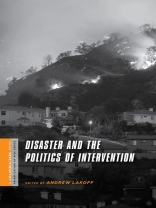Government plays a critical role in mitigating individual and collective vulnerability to disaster. Through measures such as disaster relief, infrastructure development, and environmental regulation, public policy is central to making societies more resilient. However, the recent drive to replace public institutions with market mechanisms has challenged governmental efforts to manage collective risk. The contributors to this volume analyze the respective roles of the public and private sectors in the management of catastrophic risk, addressing questions such as: How should homeland security officials evaluate the risk posed by terrorist attacks and natural disasters? Are market-based interventions likely to mitigate our vulnerability to the effects of climate change? What is the appropriate relationship between non-governmental organizations and private security firms in responding to humanitarian emergencies? And how can philanthropic efforts to combat the AIDS crisis ensure ongoing access to life-saving drugs in the developing world? More generally, these essays point to the way thoughtful policy intervention can improve our capacity to withstand catastrophic events.
Additional Columbia / SSRC books on the Privatization of Risk and its Implications for Americans
Bailouts: Public Money, Private Profit Edited by Robert E. Wright
Health at Risk: America’s Ailing Health System-and How to Heal It Edited by Jacob S. Hacker
Laid Off, Laid Low: Political and Economic Consequences of Employment Insecurity Edited by Katherine S. Newman
Pensions, Social Security, and the Privatization of Risk Edited by Mitchell A. Orenstein
Tabella dei contenuti
Introduction, by Andrew Lakoff
1. Beyond Calculation: A Democratic Response to Risk, by Sheila Jasanoff
2. Private Choices, Public Harms: The Evolution of National Disaster Organizations in the United States, by Patrick S. Roberts
3. Strange Brew: Private Military Contractors and Humanitarians, by P.W. Singer
4. Risking Health: HIV/AIDS and the Problem of Access to Essential Medicines, by Heinz Klug
5. Constructing Carbon Markets: Learning from Experiments in the Technopolitics of Emissions Trading Schemes, by Donald Mac Kenzie
List of Contributors
Circa l’autore
Andrew Lakoff is associate professor of anthropology, sociology and communication at the University of Southern California. He is the author of
Pharmaceutical Reason: Knowledge and Value in Global Psychiatry, and coeditor, with Stephen J. Collier, of
Biosecurity Interventions: Global Health and Security in Question. His current research concerns the intersection between global health and national security in the development of approaches to new biological and environmental threats.












